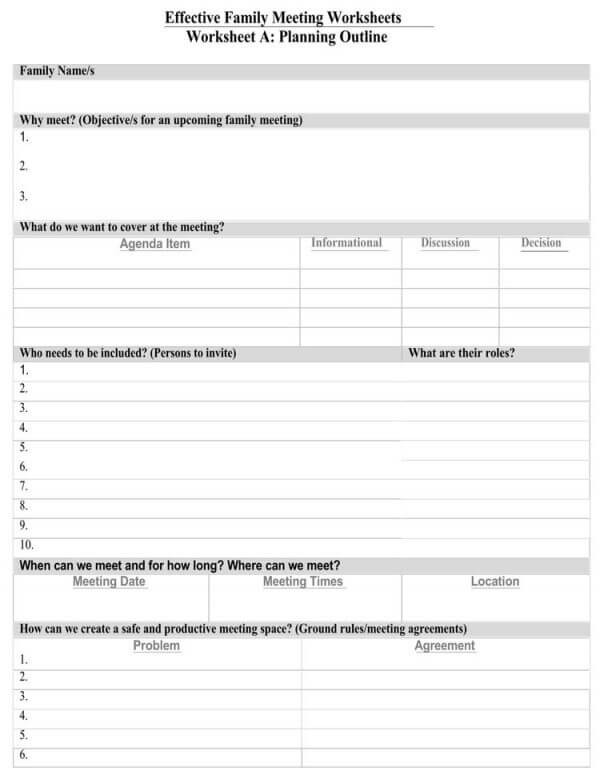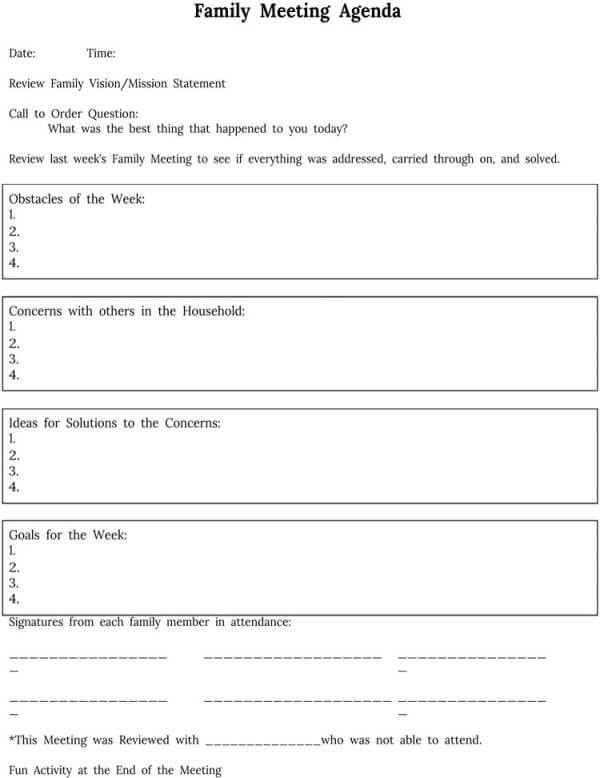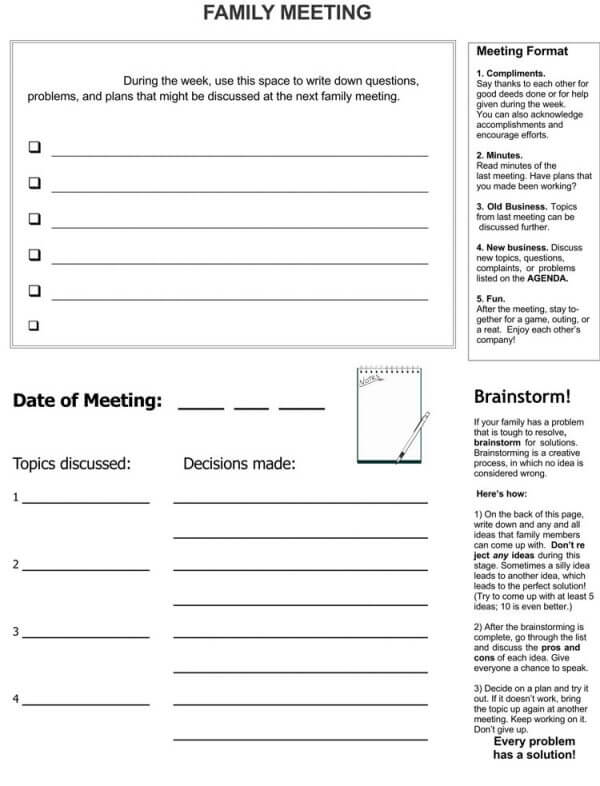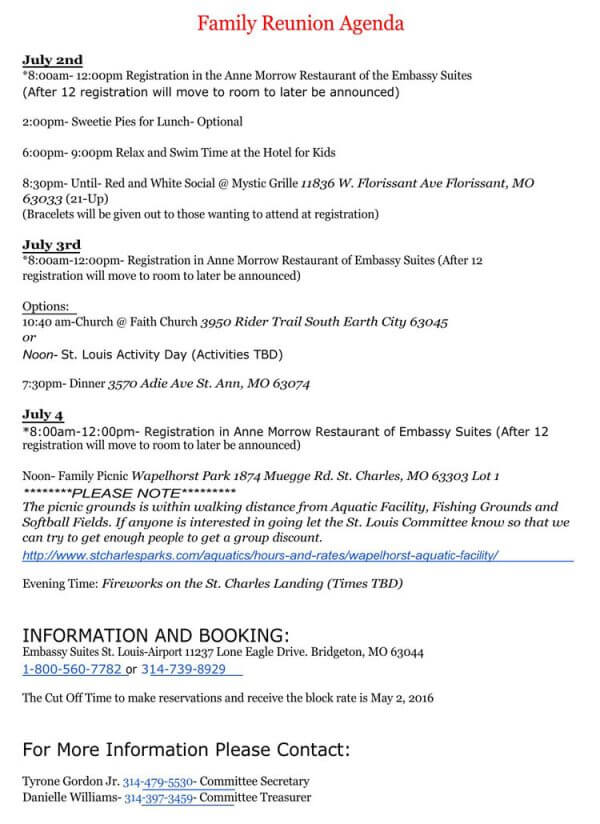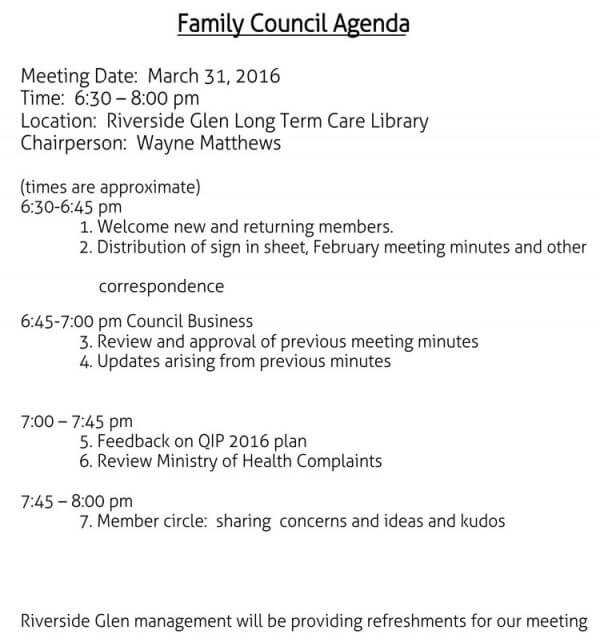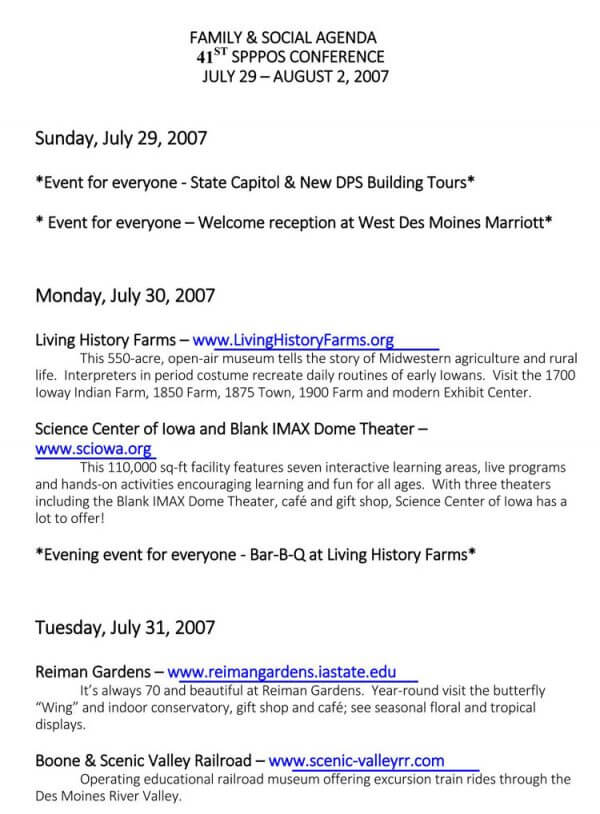Family meetings are more like the opportunities for a family to address important matters, reinforce values, strengthen communication, and foster positive bonds. Parents and children are mostly hesitant to attend family meetings because they don’t realize their structure and purpose. Some parents are afraid that it will reduce their dominance. Vice versa, kids may see family meetings as a plan for parents to impose restrictions and rules.
Toning up the family bond can prove to be complicated even for the most devoted parents.
One of the ideal tools to accomplish this goal is holding a weekly family meeting. A family meeting can be the most bonding and effective things families can hold to experience more connection and depth and create the best harmony with those they adore.
Why Family Meetings are Important
The weekly family meeting goals can be fruitful for you to bring everybody closer together, communicate better, and have some fun. The understanding and support that come along with these gatherings create more affection and harmony.
When parents understand the gains from a family meeting and how they can effectively develop a family meeting agenda that comprises problem-handling, fun, and family relationship, they will be able to define the structure and value of family meetings to their family members.
Together, the goal is to construct habits that will help your family foster healthy relationships with your little ones and young kids, which is the basis of a positive upbringing.
Is Your Family Ready?
If family meetings are extremely important to develop harmony in relationships, why do so many families avoid taking the time to hold them? And when they do, why do they have so many problematic situations?
Parents talk about their difficulty and frustration with making their family understand and implement family meetings and the reason they tell is their children don’t follow the rules and they do unacceptable things at the meeting like showing their talent for burping in the meeting and showing great anger while they are brainstorming the ideas.
Another important part of the problem could be the lack of time from both or one parent for training. They may think their kids have all the necessary qualities for family meetings. It’s like expecting a kid to have intelligence like a college in their first year of taking part in small activities.
For an effective and constructive family meeting, you should introduce your family to these five components. Let them know that you will be giving as much time as it takes to understand every component;
- The purpose of the meeting
- Complimenting each other (the things you all are proud of)
- Family time (including fun activities like the cooking, game, movie, or any healthy discussion).
- Calendar and scheduled time for the family fun event
- Brainstorming solutions and giving suggestions
On the first meeting you can focus more on compliments, brainstorming ideas and agenda and let your children know that this is the time where they can address things that are bothering them and they want solutions. Don’t forget that mistakes are the best opportunities to learn new and productive things. Don’t talk too much in family meeting and allow every member to share their thoughts. Your kids don’t want another platform where their parents could lecture them.
How You Can Have a Constructive Family Meeting
This is the core agenda of the family meeting: construction. Family meetings give every member a voice; they construct a kid’s self-esteem. The kids are treated like important members of the family whose ideas are heard and considered. They learn that family members are interdependent, they are all linked, and what each person does can affect all.
The family becomes closer, and the cohesiveness increases because kids are more likely to recognize the importance of being together. By engaging in family matters and solving them, kids see themselves as responsible for making a good family life and developing healthy relationships.
Here are some effective tips to have a constructive family meeting;
Start The Meeting At The Decided Time
Start and end the family meeting on time. Pay attention to the time and motivate commitment by showing it as a top preference. Often, the discussion can take extra time, so one parent can name themselves as the manager to keep the time. At 5 minutes before winding-up the meeting, the time-keeper member should check if the family members could resolve the problem in 10 minutes or if they want to prolong it or schedule a new time to continue the discussion.
The Meeting Should Be Cheerful and Not Boring
The concept of a family meeting is making every member attending the meeting feel respected and valued. Talk about the positive things that happened during the past days and ask your kids about the funniest things that happened to them. Don’t forget to hold your sense of humor and don’t be afraid to burst out in laughter.
The family meeting is about communicating, which can lead to better bonding between all the family members and it’s easy to communicate when you’re having a happy time together.
Rotate Meeting Duties (Time-Keeper, Leader, Secretary)
Treat every member equally; it helps in great involvement. Motivate all to pay attention to every point.
The leader should be an adult family member who can be followed for good communication with good listening and meditation qualities. The leader begins and closes the discussion on time and assists the family to construct the plan, restrictions, and regulations to upkeep. For example, it can be a rule that only one person will speak at a time, and the rest of the members will listen well to address or give a solution/ suggestion in response to the speaker’s gratification what he/she shared.
The leader ensures all important points are listened to. One more quality of a leader is; he holds the agenda focused on a single topic and closes the meeting at a defined time.
Ultimately, family members decide who will be the time-keeper, secretary, and leader next time. A secretary in family meetings tracks the time, records activities on a calendar, and keeps minutes of agreements and decisions.
The time track can be kept on a family journal to look back or later. All of these three roles can be rotated among the adults until everybody gets familiar with the roles. Some families like to have roles like rule-maintainer, referee, and co-leader. They think that parents should be co-leading with their young kids who don’t believe they can be a good leader.
Adopt one style for a family meeting for a few weeks and then make changes according to your family and lifestyle.
Encourage your Family Members to Attend the Meeting
If you live with in-laws, a nanny, or any other relatives, they are all part of your family and they must be a part of the meeting as well.
Don’t be pushy for things and let everybody involved feel free and respected. If one member is not participating, ask some gentle questions to get him/her a pioneer.
For example, you can talk about the best things that happened to them this week or the worst things as well.
Make It Precise
Try to make it short and simple. Have an agenda and talk about it and let everyone feel heard and understood. Although a little challenging, you can start with nice things to share and then talk about goals to achieve this week and address the particular issues.
Use The “I” Approach
Mostly when we are mad at somebody or frustrated, we start sentences like “You did this, you are so…” or a similar version. When the other person hears it, he talks in a defensive tone. However, while sharing this information, usually you try to voice an emotion or a concern.
Try saying like: “I feel bad, sad, disappointed…” or “I get aggressive or upset with….”
This helps the attendees hear and get your feelings and what you expect without feeling lashed out personally.
Discuss One Particular Agenda and Resolve One Issue at Once
The family meeting should begin with everyone talking about their feelings, thoughts, and plans. The theme of the family meeting should be something that impacts the entire family. For example, if a problem just impacts one parent or a single sibling, it is not advised to discuss that problem, singling out that individual.
The parent (leader) can commence the meeting with a pitch like “the issue we would like to fix today is… I recommend we give 5 minutes to this matter, is this fine?”, the family members can negotiate more time later. If the leader observes the discussion going off-topic, he can address it like, “that sounds like another problem, we may want to talk about at another meeting, but for now, we’re here to solve…”. This type of leadership might be difficult for kids, so parents must nurture the kids’ leadership capabilities.
One or both parents may like to sum up the discussion to keep the agenda on track when the focus shifts to another unresolved problem.
Parents should search for verbal or nonverbal signs that a family member doesn’t feel good about something. If one or more meeting attendees are uncomfortable, then a parent must call a time-out to the gathering and check in on every family member.
Structure Your Meeting By Using a Family Meeting Plan
You can create a calming and pleasant flow with your meeting by making a structure. You can construct a family meeting plan with a notebook and pen or any software as a planner. The important point here is; that you and your kids have advance details every week. If you are spontaneous, that’s cool! Still, do things in a structured way.
Having a plan helps you stay focused, prioritize your discussion topics, foster good habits, and make sure everybody participated in the meeting. You can address privileges, emotions, and behavior in the meeting and so on.
Here are some other examples of the topics you can address in your family meeting;
- What was good about last week and who made you proud?
- What’s expected to happen this week and holiday/event plans (birthday, festival)
- Money issues
- What would be the punishments if anybody breaks the rules?
- Talk about recent problems/ issues that need to be resolved.
- What rules have you made for the family?
End Every Meeting With a Fun Element
This will motivate every family member to attend and take part. Plan your meeting as a team and remind your children that if they don’t get to do what they wanted, there will be another chance next week. This way, you will teach them to be patient, and nobody will get their feathers ruffled.
You can play games, prepare and eat new types of food because it can be the perfect incentives to ensure attendance, or you can watch a nice family movie together.
Free Templates
Because we care about you and your family, we are providing you with free-of-cost and entirely customizable family meeting agenda templates for your family to enjoy a magical family meeting, according to below!
FAQs
How can I get my family together?
A few ways to succeed in doing so are;
● Write some positive notes to each other, reminding them how much they are valuable to you.
● Eat food together as a family.
● Have each other’s back.
● Cook and create stuff together.
Why are family meetings important?
Family meetings are important because they provide a reliable and designated space and time to stick together as a family. Offering time, space and emotion to resolve issues, individual or family, both and share feelings such as happy/sad moments that help kids feel a sense of importance and belonging.
What do normal families do?
Families love, care, and support each other, offer a sense of belonging, provide support and security, make each person valued, esteemed, and important.
Holding a regular family meeting weekly will be one of the highest ROI (return on investment) you will ever make. You can accomplish the most important goals by having this gathering, such as; teaching your children or family members how to love and value all members of the family and teaching them how to be strong and independent in life. So, make your plans to hold the perfect family meeting with your loved ones. It’s the best way to have a great time as a family and simultaneously plant seeds of goodness into the minds of your children and resultantly raise them to become good humans.
